Cowboy Junkies' breakthrough album, The Trinity Session, was recorded 27 years ago today. It was on Nov. 27, 1987, that the band walked into Church of the Holy Trinity in Toronto and, as Margo Timmins put it, "my entire life changed."
They've been known as the "Trinity Session" band ever since, which the band has made peace with while continuing to put out albums. To celebrate the Cowboy Junkies' anniversary, we look at 27 (of course) of those albums. Is The Trinity Session really the best one?
This is Cowboy Junkies, ranked.
Related:
Cowboy Junkies live at Glenn Gould Studio
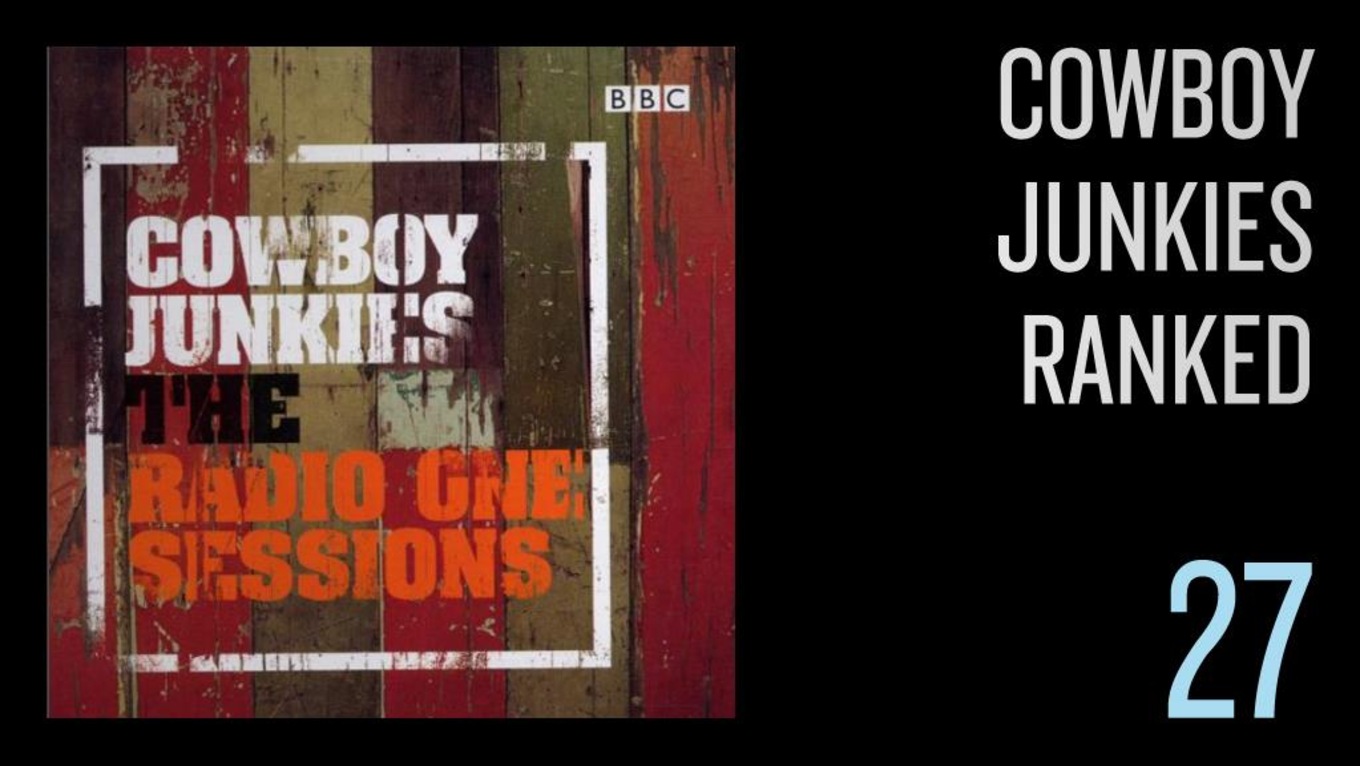
The Radio One Sessions (2002)
This should never have seen the light of day. Margo Timmins had a terrible cold during the U.K. radio promotion for Lay It Down, where a good third of these tracks were recorded. It's not the most enjoyable listen when you're feeling bad for the musician.
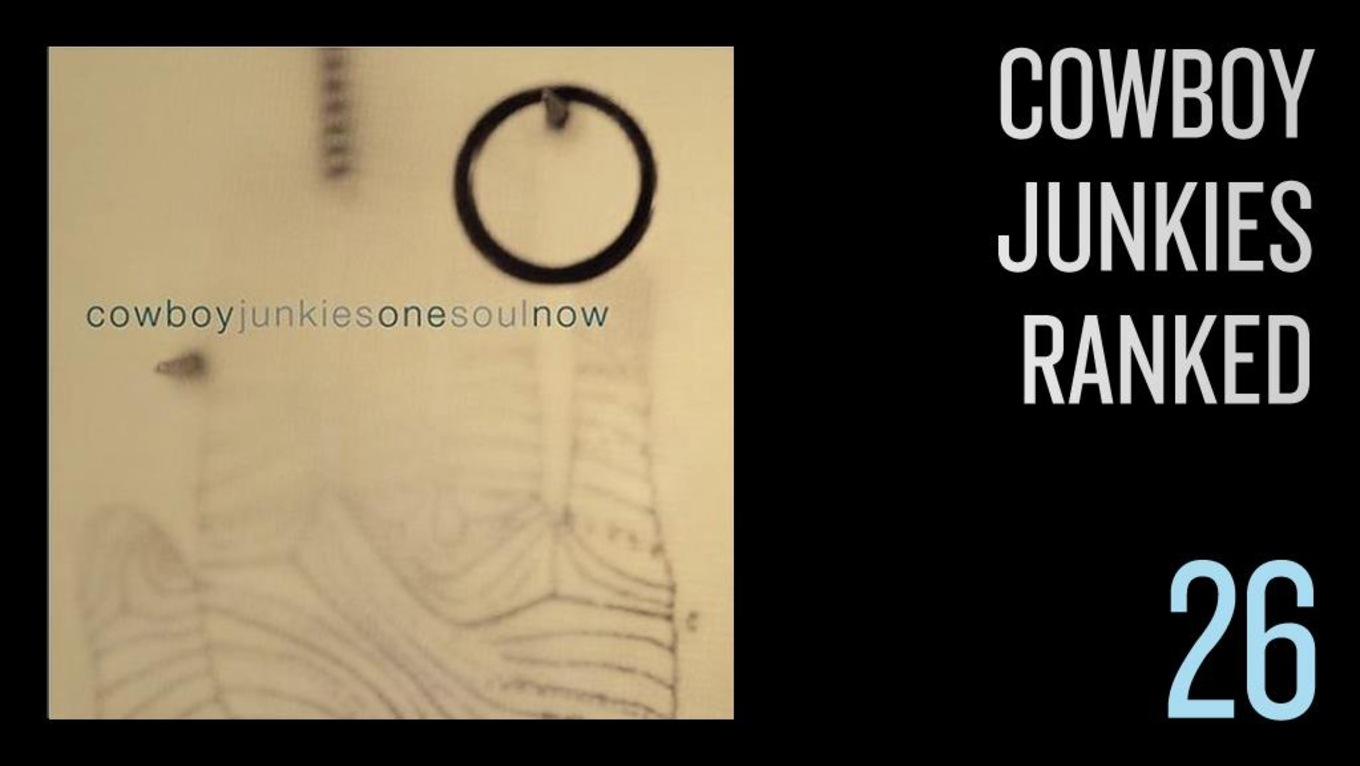
One Soul Now (2004)
There's not much from this studio album that really works. As a collection, it's probably the least exceptional songwriting Michael Timmins has ever had, all in one place. "Stars of Our Stars" sounds like a ripoff of his own work on "Miles From Our Home."
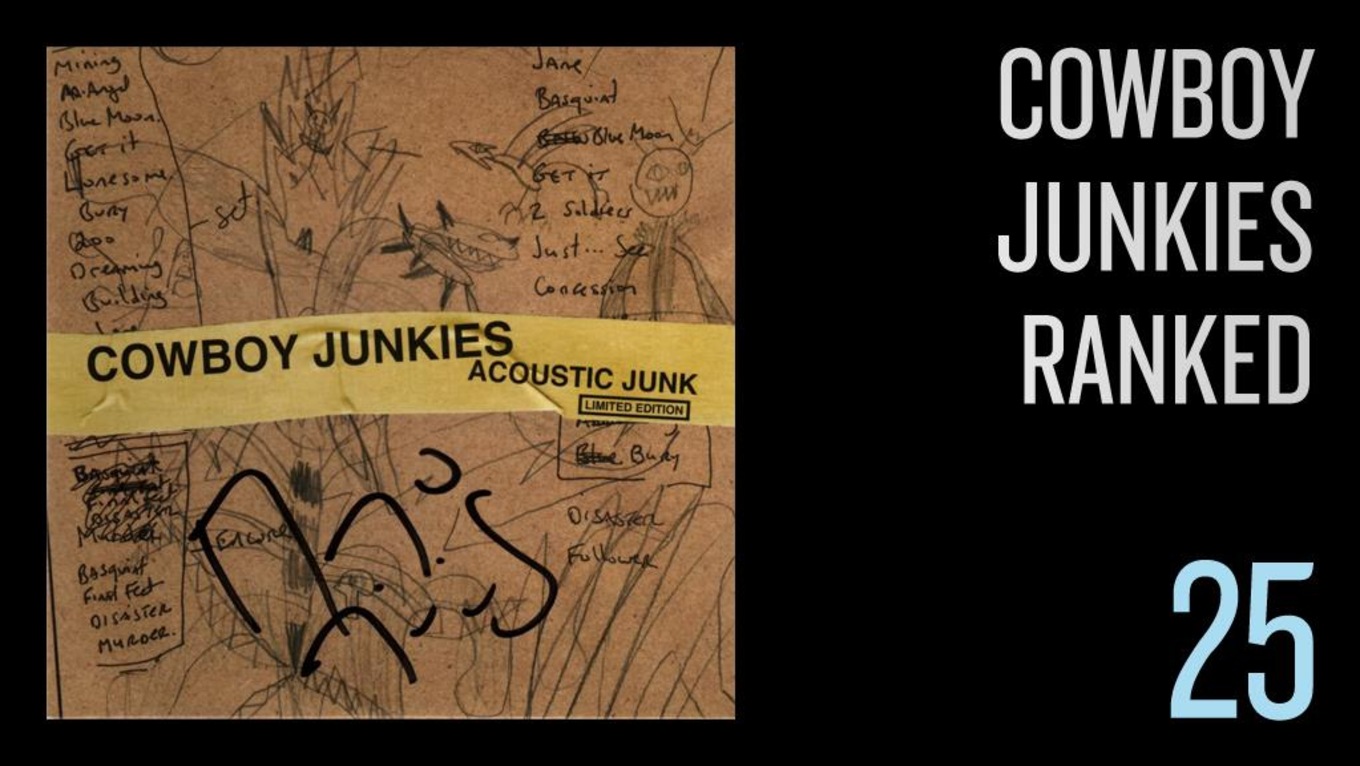
Acoustic Junk (2009)
This album starts with a nod to a fan: "You rolling, Bob?" Margo asks before the first notes of the band's cover of Ryan Adams's "In My Time of Need" begin to play. But aside from that track, and a stripped-down version of "Those Final Feet," there's nothing new on this limited-edition disc. Released in 2009 exclusively at live shows, it's mostly for serious collectors and completists.
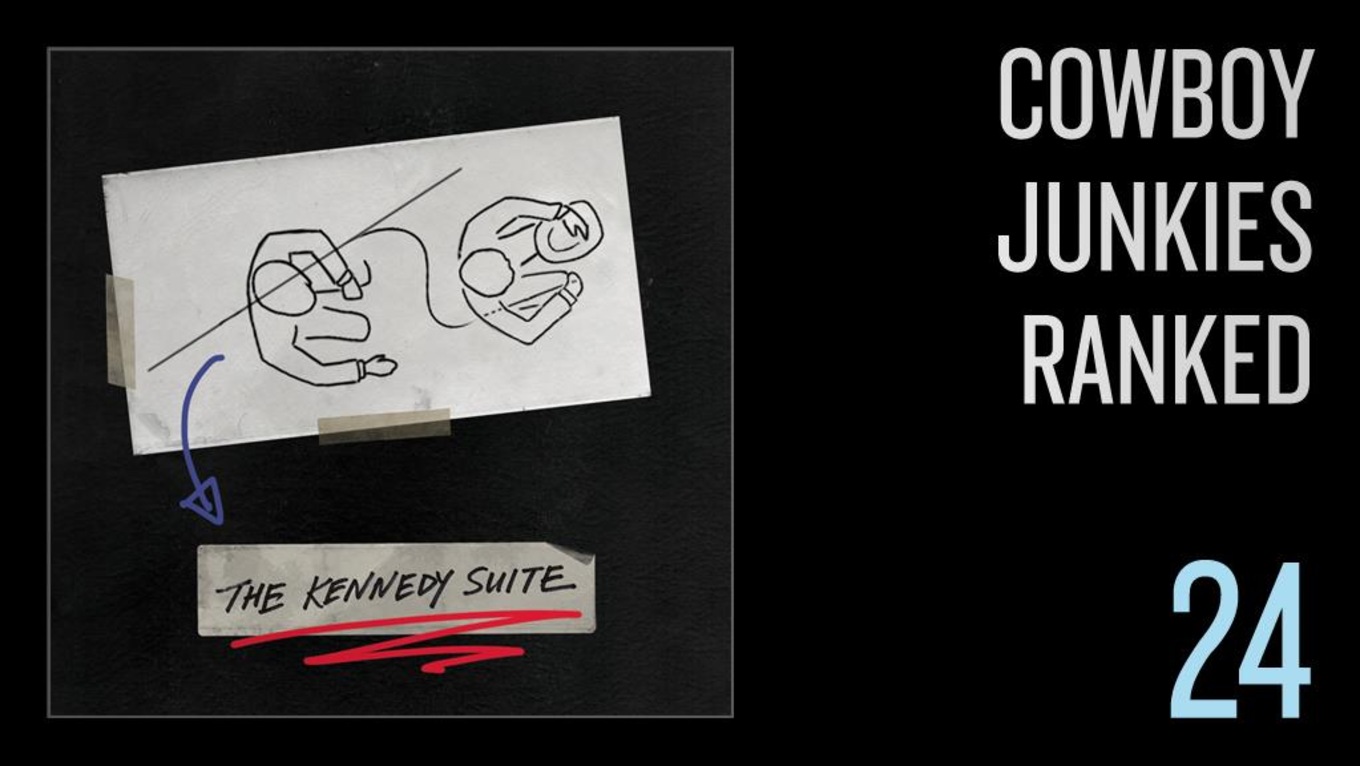
The Kennedy Suite (2013)
If The Nomad Series wasn’t enough of an undertaking for one band, Cowboy Junkies released The Kennedy Suite soon after. With lyrics by Scott Garbe, the music for this song cycle on the story of the JFK assassination was arranged, recorded and produced by the band. Told through the narratives from a series of characters, Margo delivers an incredibly moving performance from Jackie Kennedy’s point of view on “Disintegrating.”
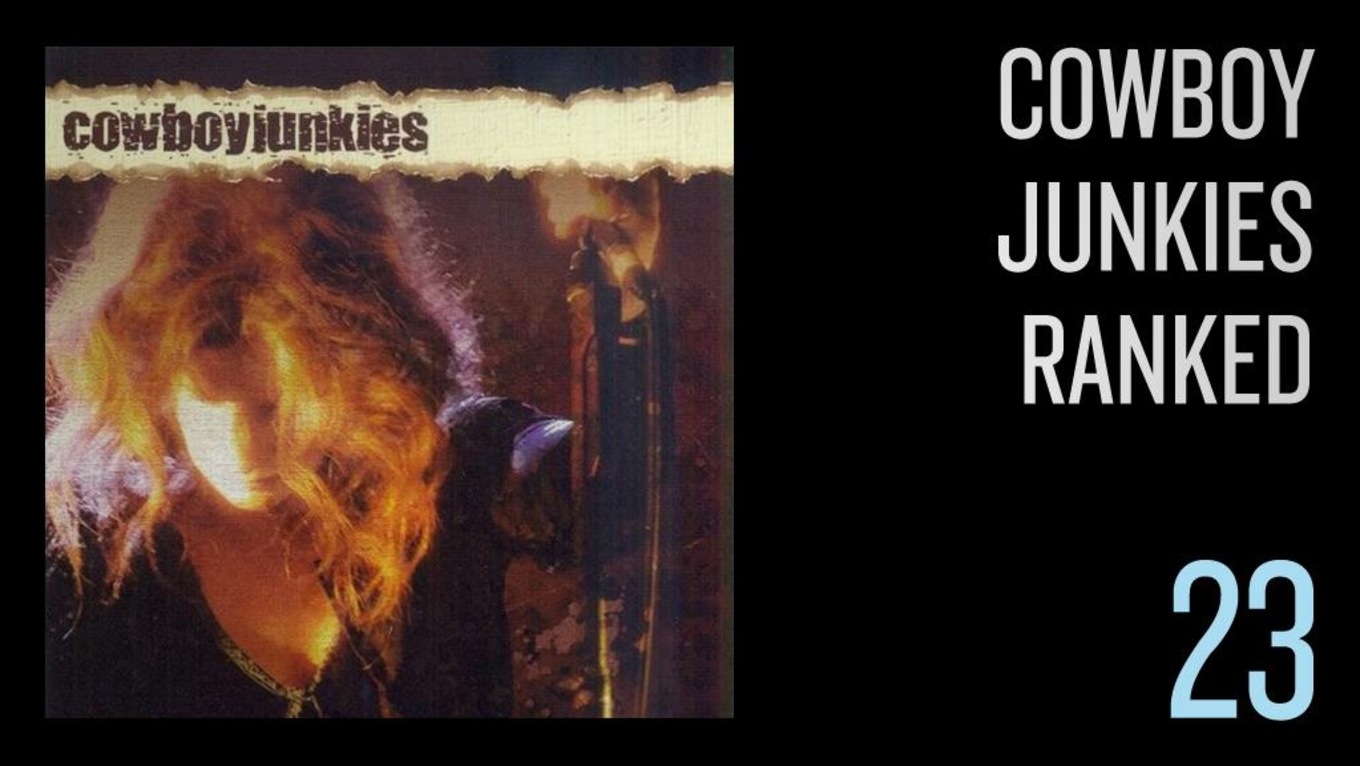
Long Journey Home (2006)
Recorded at a concert in Liverpool, England, in 2004, the Long Journey Home album serves as a companion piece to the DVD release of the same name. Eleven of the DVD’s 18 songs, sequenced differently, are on the album itself, and include a smouldering rendition of Robert Johnson’s "32-20" and the band’s most recent re-invention of concert staple "Sweet Jane."
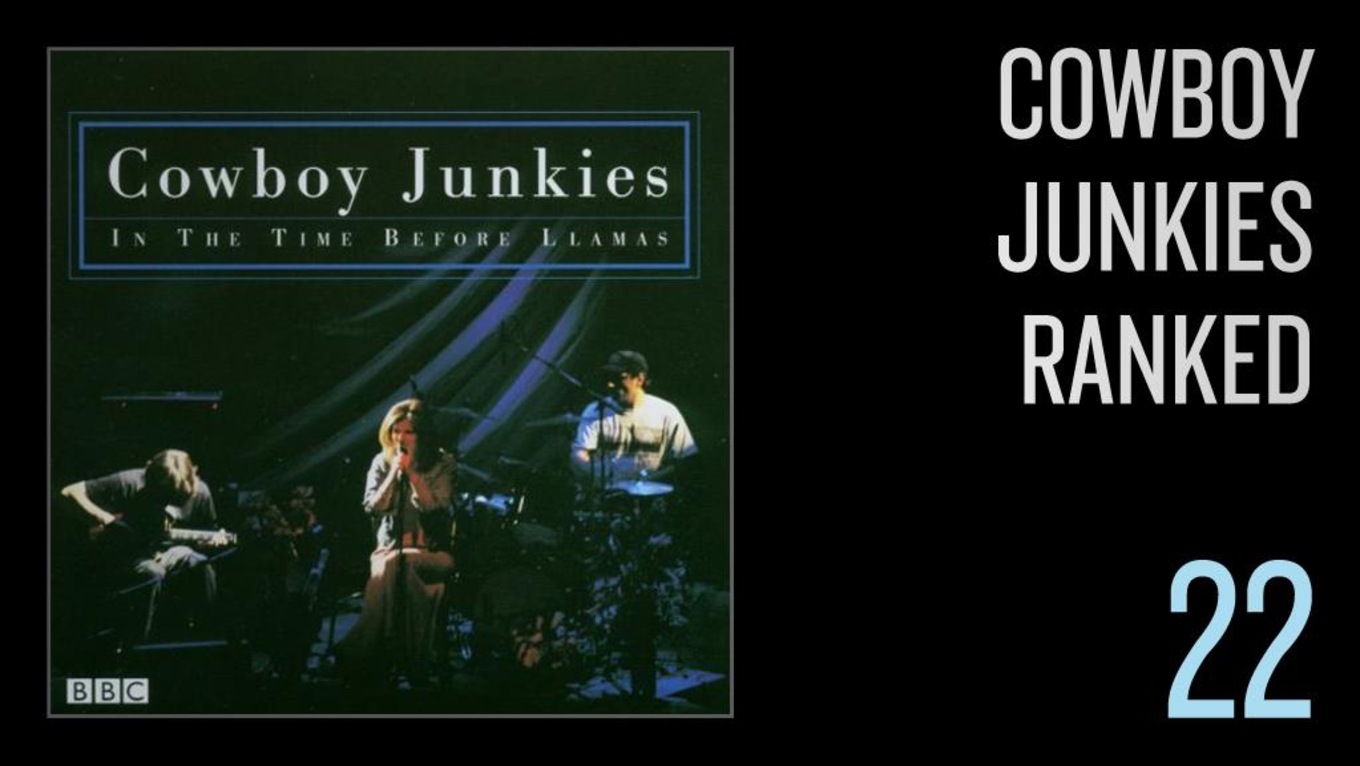
In the Time Before Llamas (2003)
The title of this album is a somewhat subtle nod to a core group of fans — nicknamed "llamas" — that had been supporting the band online and on the road since Cowboy Junkies' major label emancipation. As a perhaps additional nod to the llamas, the band chose to include a few live renditions of rarely performed older songs like "Thirty Summers," "Whalers/Mariner's Song" and a cover of Gram Parson's "Hot Burrito #1."
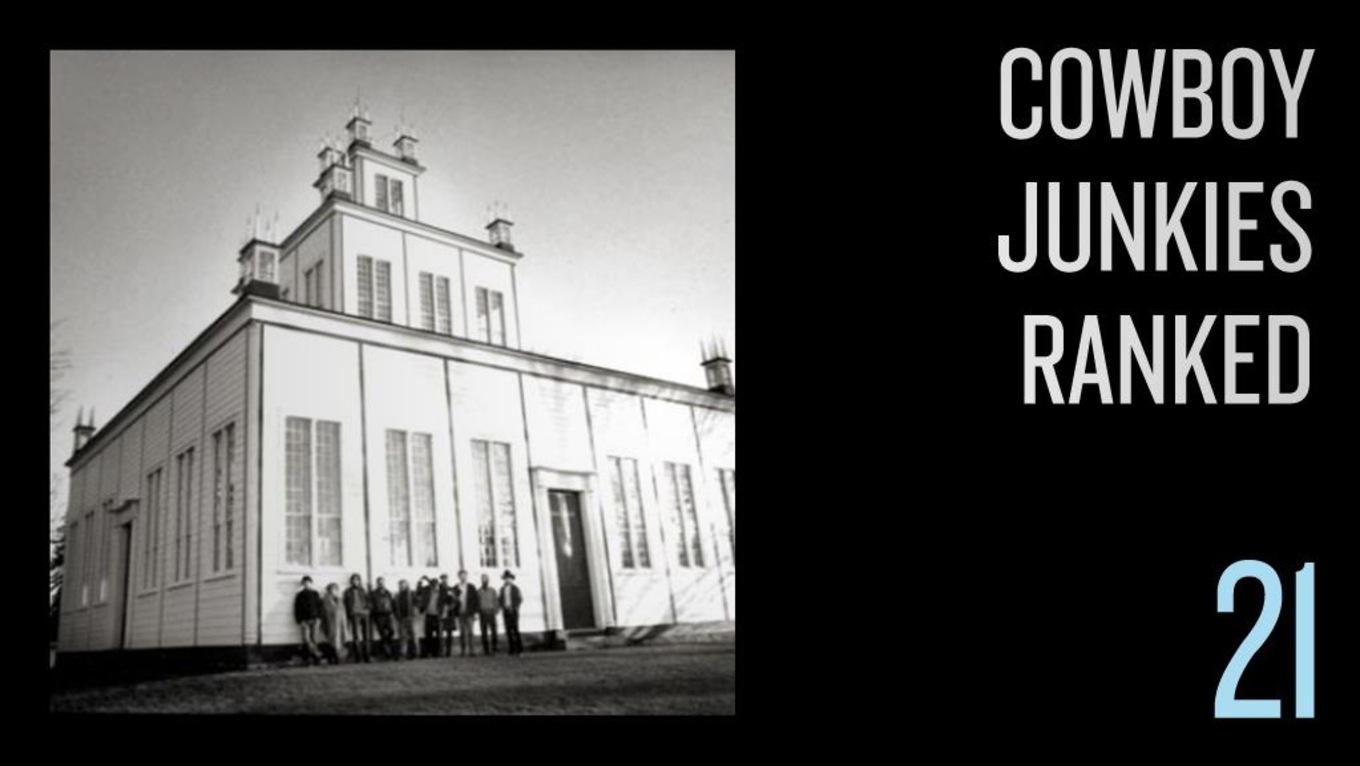
Sharon Temple Sessions (2007)
Recorded in 1989, Sharon was the original name for the collection of songs that went on to become The Caution Horses. Recorded north of Toronto in Sharon, Ont., what should have been their third album was shelved and then re-recorded in a more traditional studio setting. The difference between the two recordings is subtle, but present. Bandied around unofficially on bootlegs for decades, the band quietly made this official version of these recordings widely available in 2007.
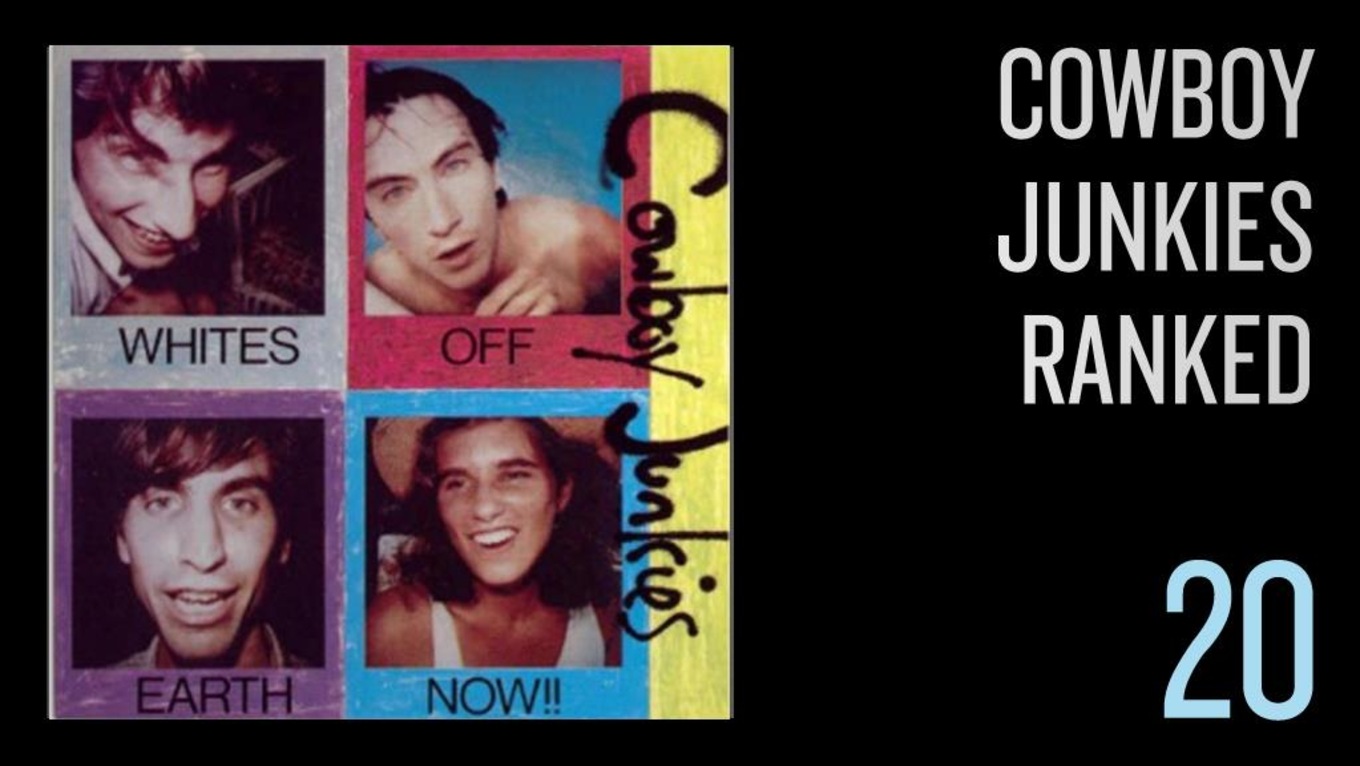
Whites Off Earth Now!! (1986)
This is the one that started it all. The very first Cowboy Junkies album featured covers of Lightnin' Hopkins, Robert Johnson and Bruce Springsteen (they'd mine that well for years to come) and, while the album is all covers save for one song — "Take Me", penned by Michael and Margo — it set the tone for what would become one of Canada's most legendary bands. Cowboy Junkies' ability to take a song, any song, and make it their own remains one of their great strengths.
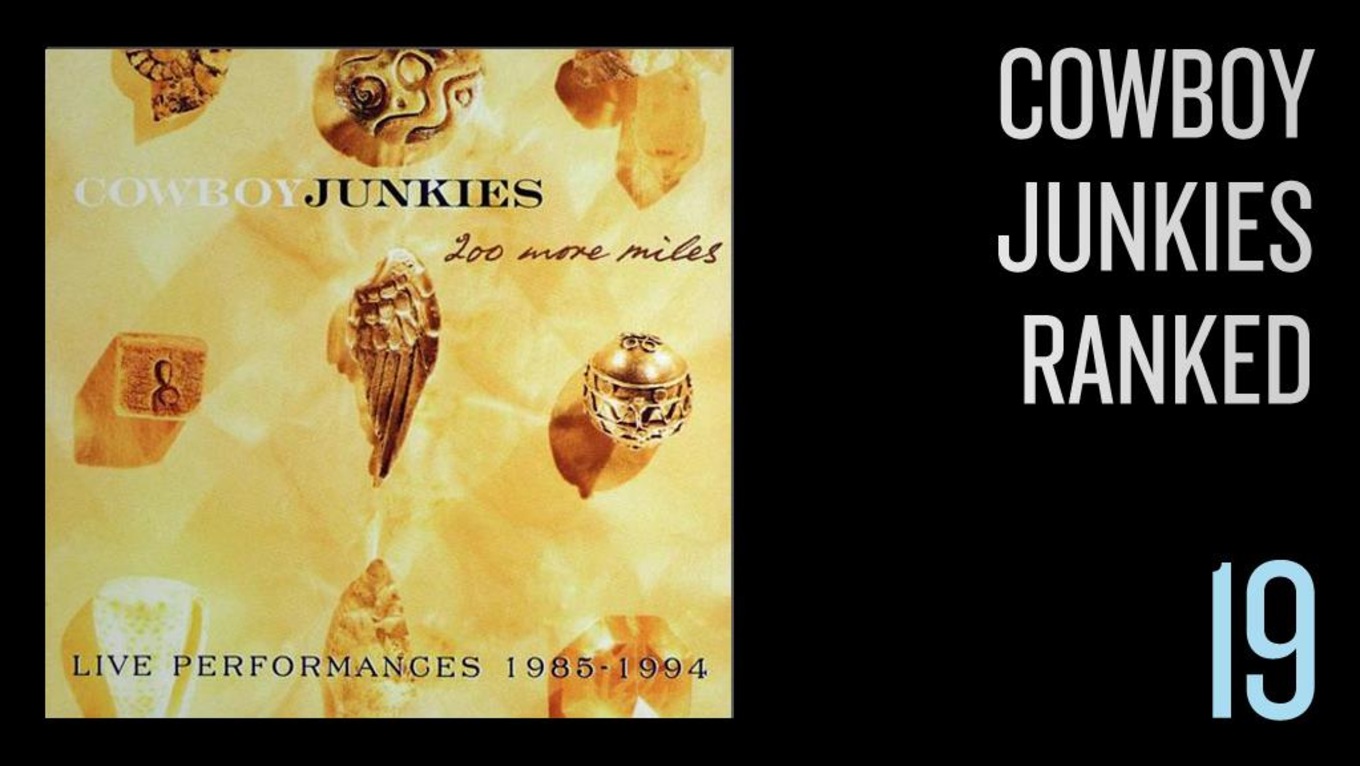
200 More Miles: Live Performances 1985-1994 (1995)
Where Whites Off Earth Now!! is a peek into the band's earliest experiment with covers, 200 More Miles is a peek into their relative infancy as a touring band. In addition to the musical offerings, Margo's onstage candor about the grind of life on the road is a standout.
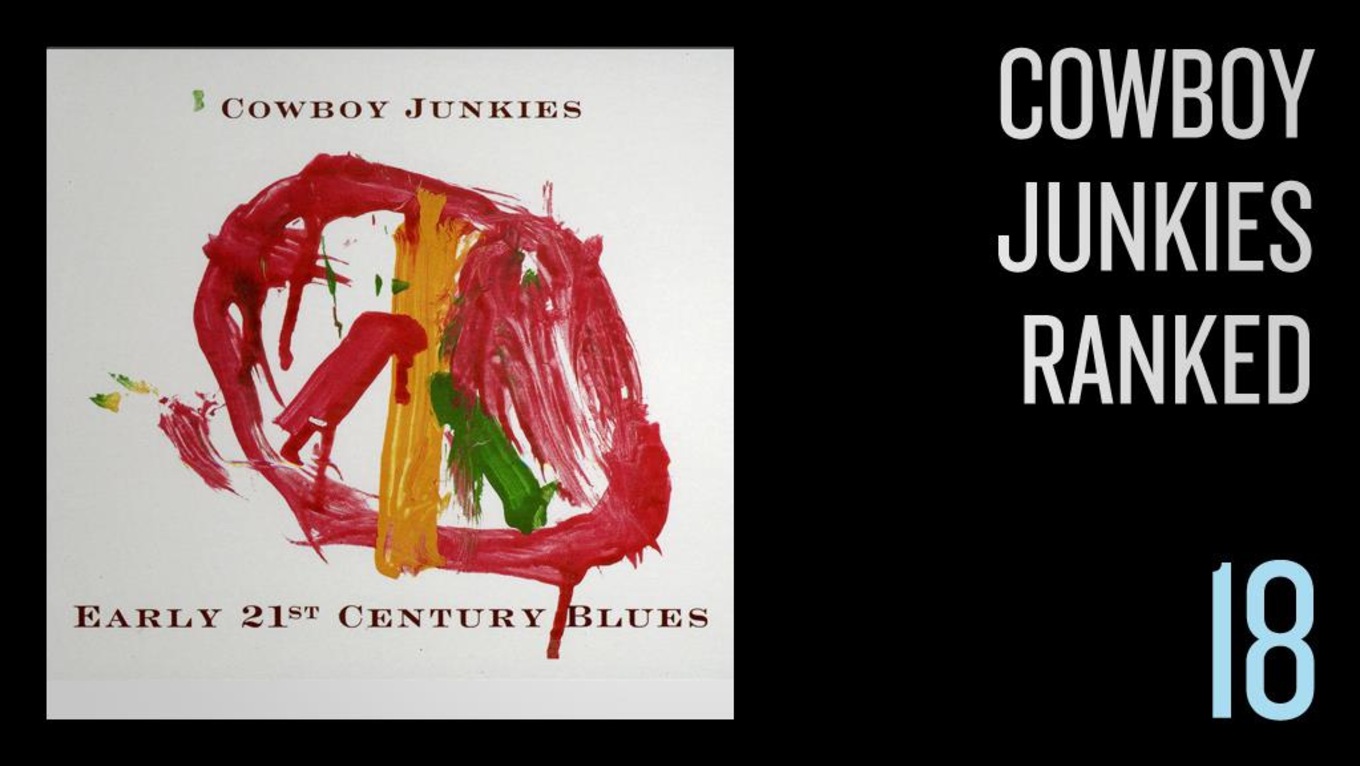
Early 21st Century Blues (2005)
There are two laughs on this record: the outtake from Margo that opens the record, and the Junkies' attempt to put a rap break in the middle of their cover of John Lennon's "I Don't Wanna be a Soldier."
But with two Springsteen covers — "Brothers Under the Bridge" and You're Missing" — plus George Harrison's "Isn't it a Pity" and a warm, beautiful interpretation of Richie Havens "Handouts in the Rain" that's more blanket than song sitting comfortably with the lone original composition this isn't an album to be missed.
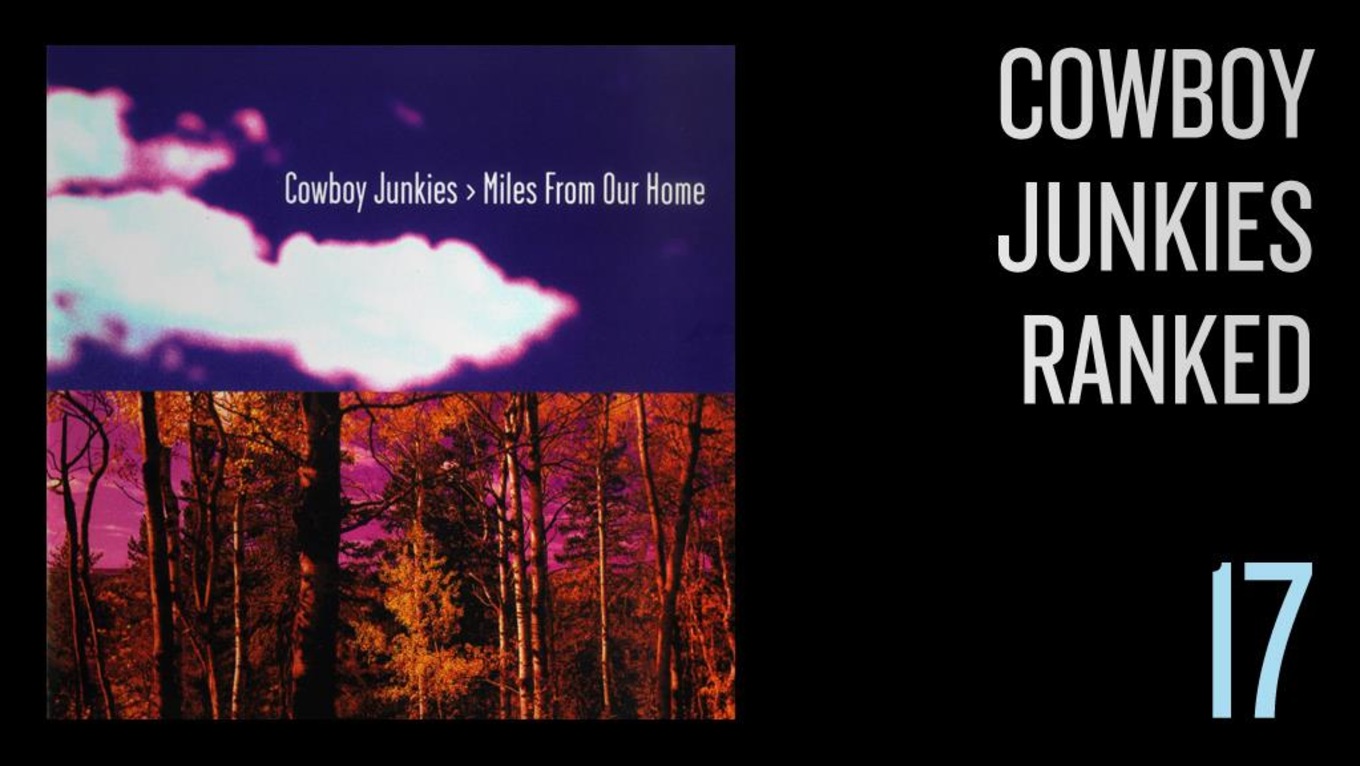
Miles From Our Home (1998)
Released at the beginning of the end of major record label dominance, this was the last album the band ever recorded for theirs. They went out in grand style, recording parts of the record at the famed Abbey Road Studios in London. The '90s production got the better of this one, though, and the album sounds needlessly slick as time goes on. The songwriting is on point, however, and as a result songs like "Good Friday," "Blue Guitar" and the title track continue to grow and shine onstage.
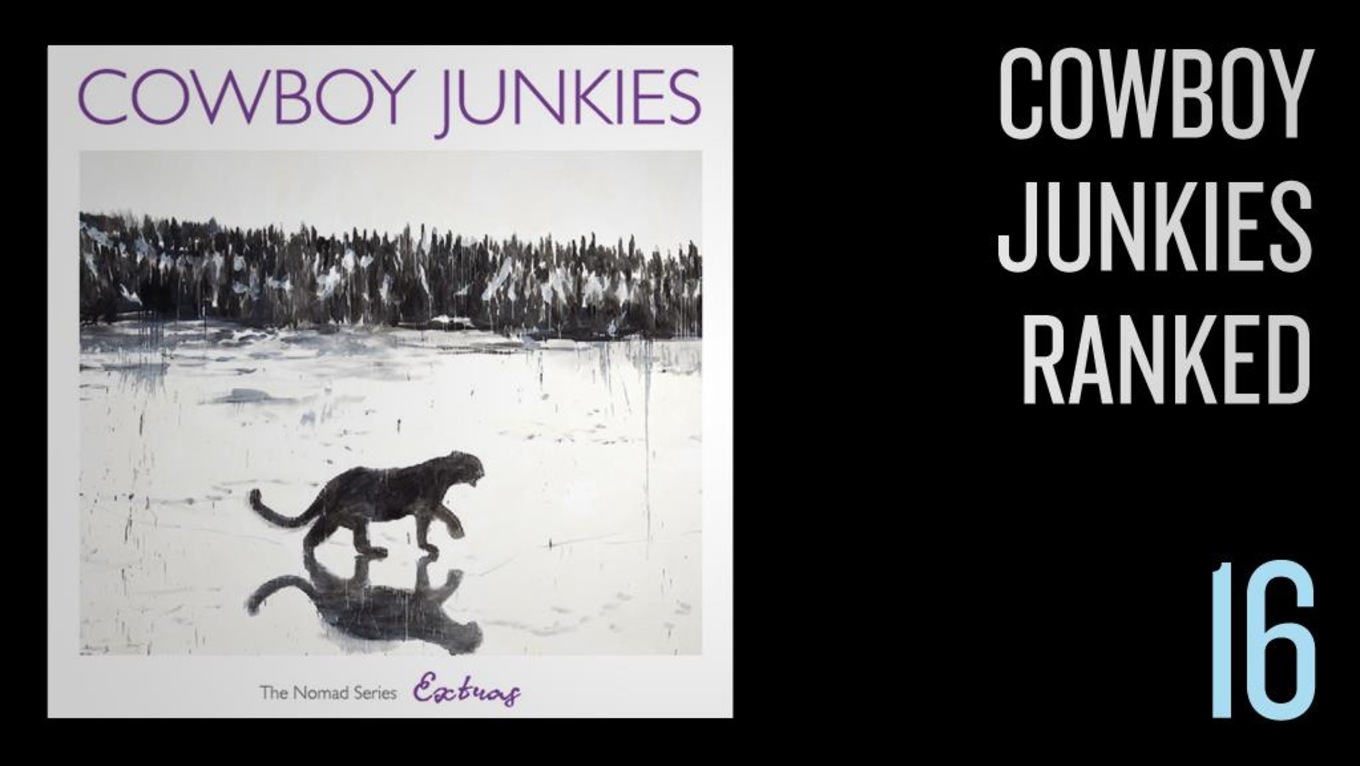
The Nomad Series: Extras (2012)
Not willing to waste an ounce of output from the most creative period in the band's history (more on that later), the Junkies released this album of extra/orphaned songs from the recording session of the second album from The Nomad Series, Demons.
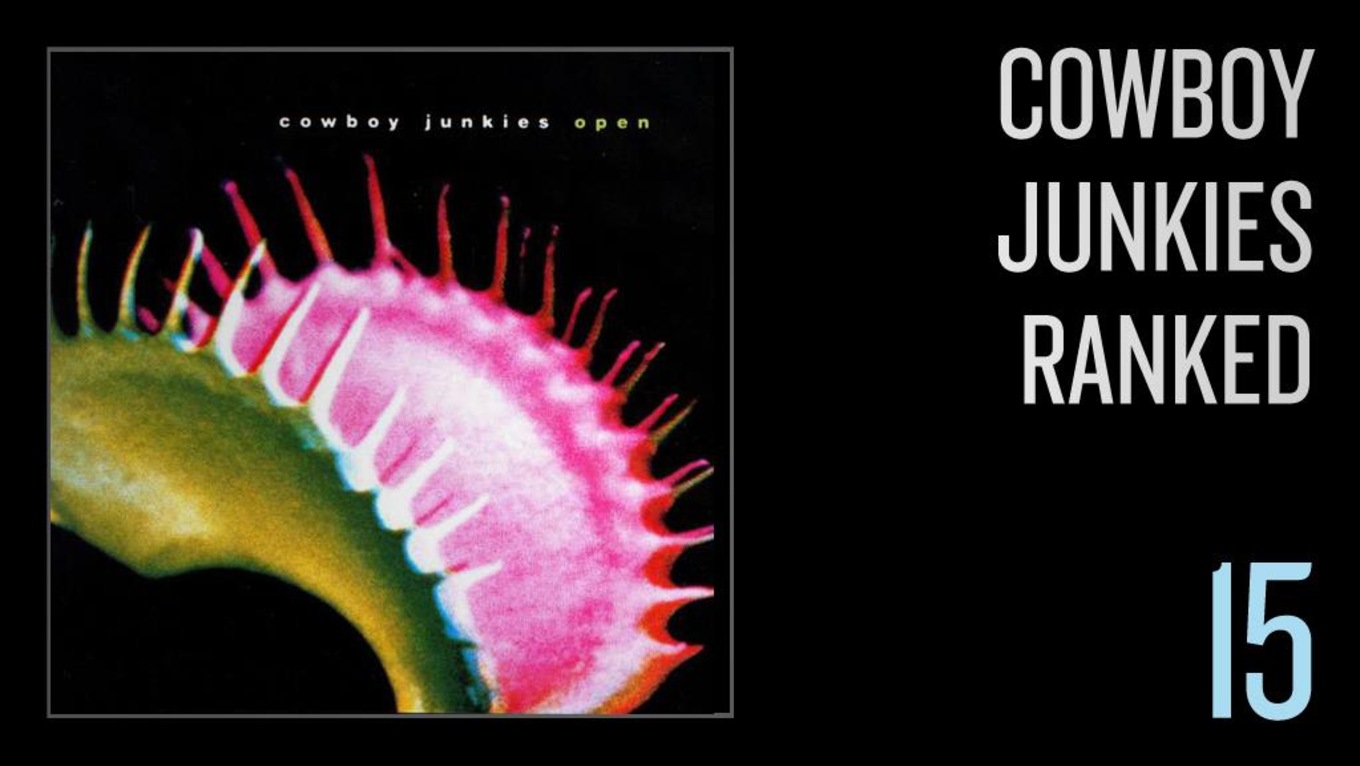
Open (2001)
Open was road-tested for months, as the band began introducing some of the songs that would eventually land on the album into their live repertoire as early as 1999. All of that rehearsal paid off. The Junkies, along with added members Linford Detweiler and Karin Bergquist from Over the Rhine, are firing on all cylinders on this record, which hardcore fans curiously favoured listening to sequenced backwards, and called it "nepO."
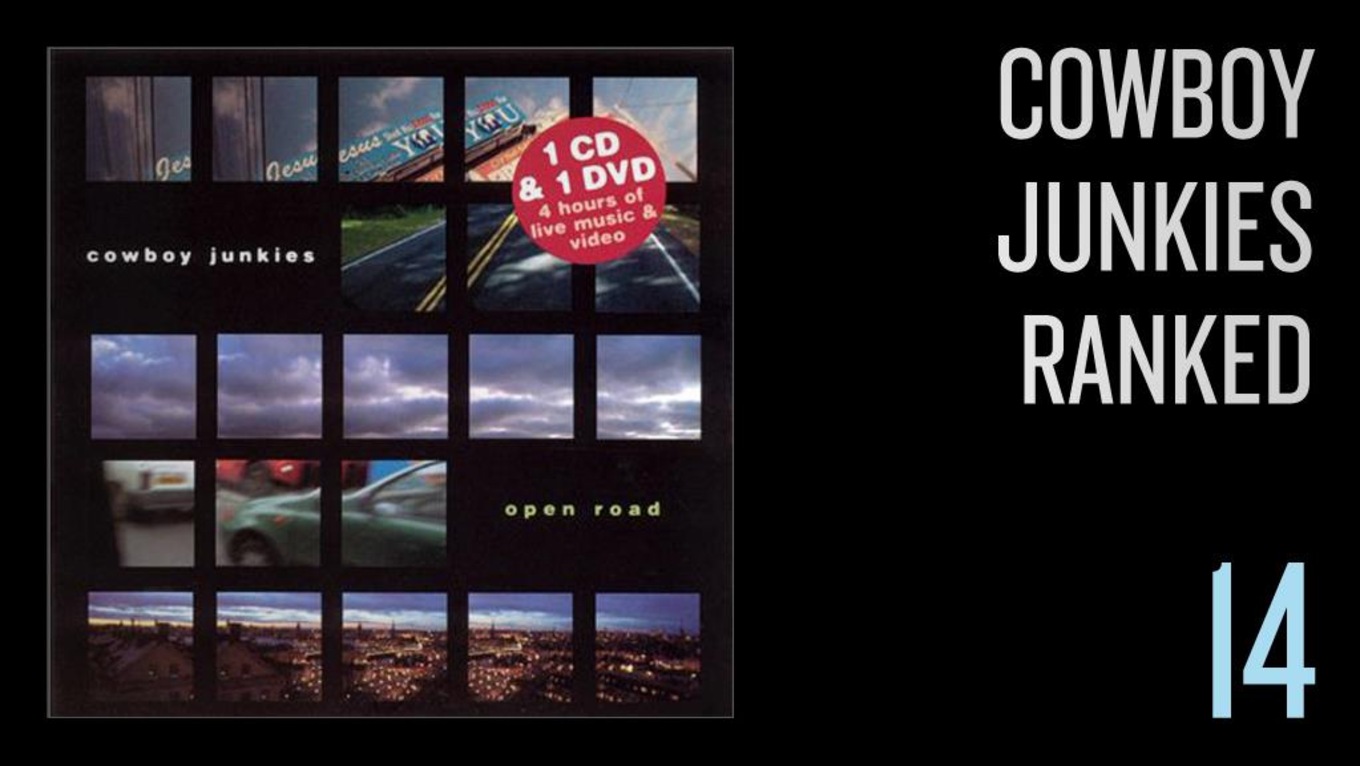
Open Road (2002)
On the heels of what was a successful tour for Open, the Junkies released Open Road, an album of bombast — and what beautiful bombast it is. Having perfected the art of exploding simple songs into wicked, six-and-a-half-minute jams, Open Road takes almost 18 minutes to get through the first two tunes. If you like psychedelic jams, Junkies-style, then this album's for you.
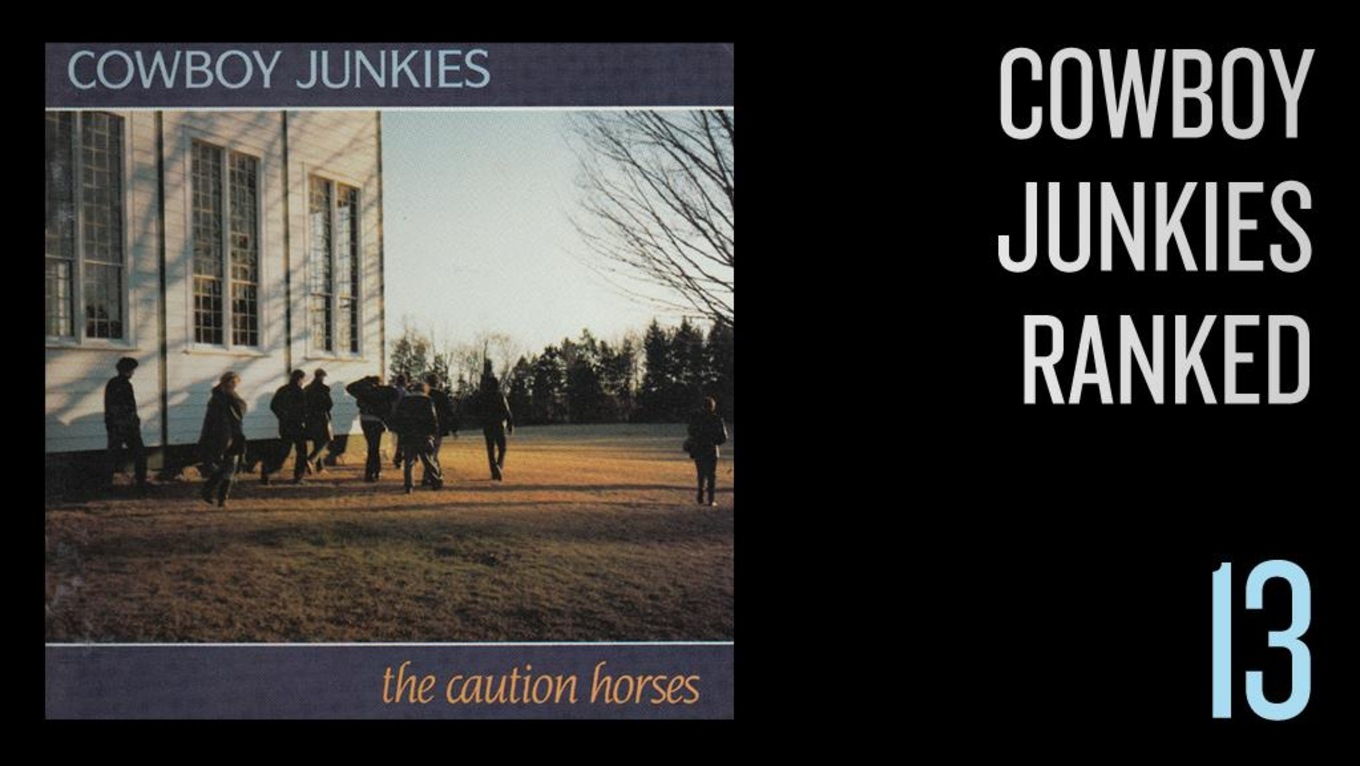
The Caution Horses (1990)
The second album from Cowboy Junkies has them still doing it their way. They abandoned the unusual location, single microphone, no overdub routine of The Trinity Session and recorded The Caution Horses the old fashioned way: in a studio.
Stepping out of the blues that influenced the first two records, they lean right into the arms of the country music that grabbed their attention as they spent months touring The Trinity Session around the U.S.
"Cause Cheap is How I Feel" sounds like it was written to be played solely from jukeboxes minutes before closing time at the dingiest dive bar you could possibly imagine, while "Sun Comes Up, It's Tuesday Morning" is perhaps the most deceptively happy, chorus-free break-up song you'll ever hear.
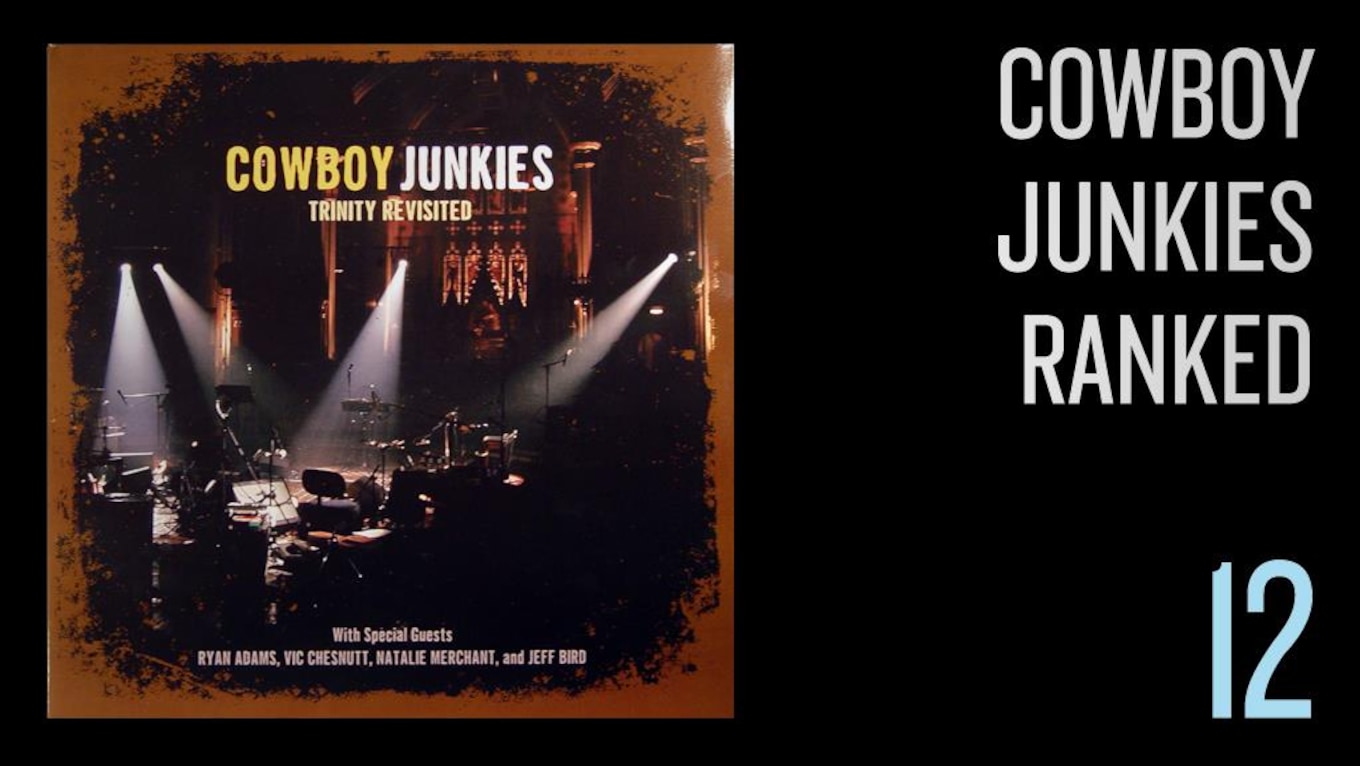
Trinity Revisited (2007)
To celebrate the 20th anniversary of what has been their most commercially successful album so far, the band went back to where it all began. The same room, same band, same songs. The Junkies brought along a few friends — Ryan Adams, Vic Chesnutt and Natalie Merchant — to keep things interesting and let the tape roll. The most remarkable thing about Trinity Revisited is how little the band has altered the arrangements over the years; there are no egos apparent on this re-recording. Margo almost becomes Natalie Merchant’s back-up singer on the matured "Misguided Angel," and she plus the core band members get out of the way completely on "To Love is to Bury," allowing Merchant and honorary Junkie, Jeff Bird, to bring their own brand of beauty to the song.
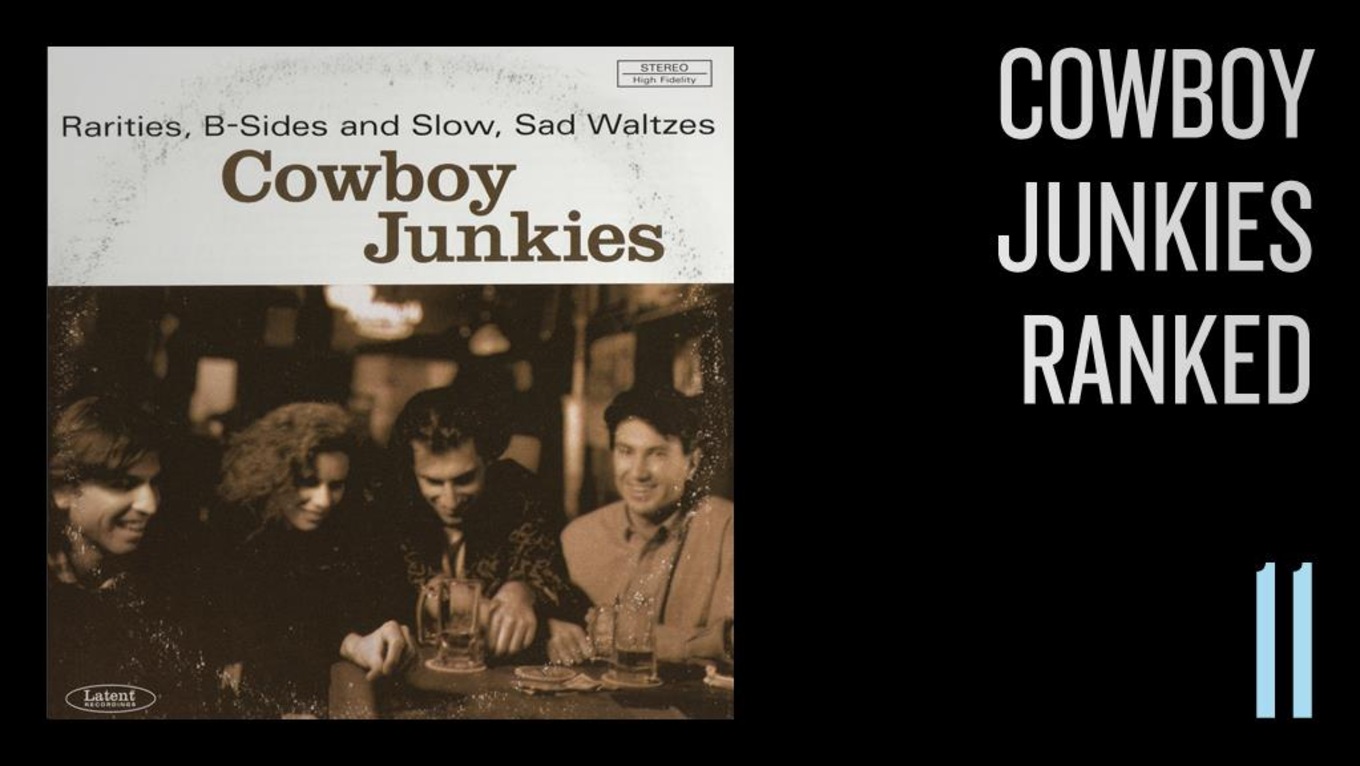
Rarities, B-Sides and Slow, Sad Waltzes (1999)
Michael's songwriting is so strong that the band's rejects are still good enough to constitute an entire album. Some of the orphaned songs that didn't quite fit the albums for which they were written eventually found a home when lumped together on this tongue-twister title of a collection.
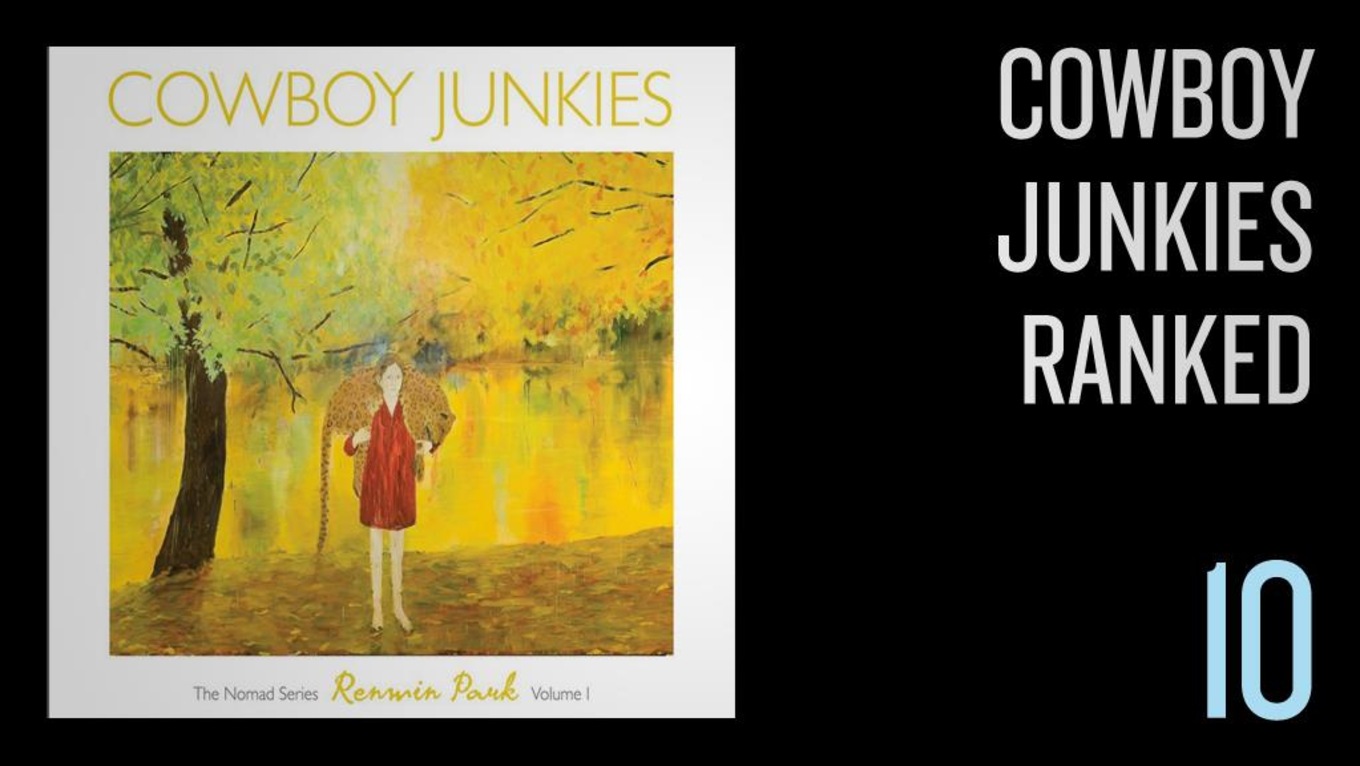
The Nomad Series Vol. 1: Renmin Park (2010)
Renmin Park was inspired by a three-month trip to China that Michael took with his family. It kicked off the most ambitious project the band has undertaken to date — writing, recording and releasing four albums in 18 months.
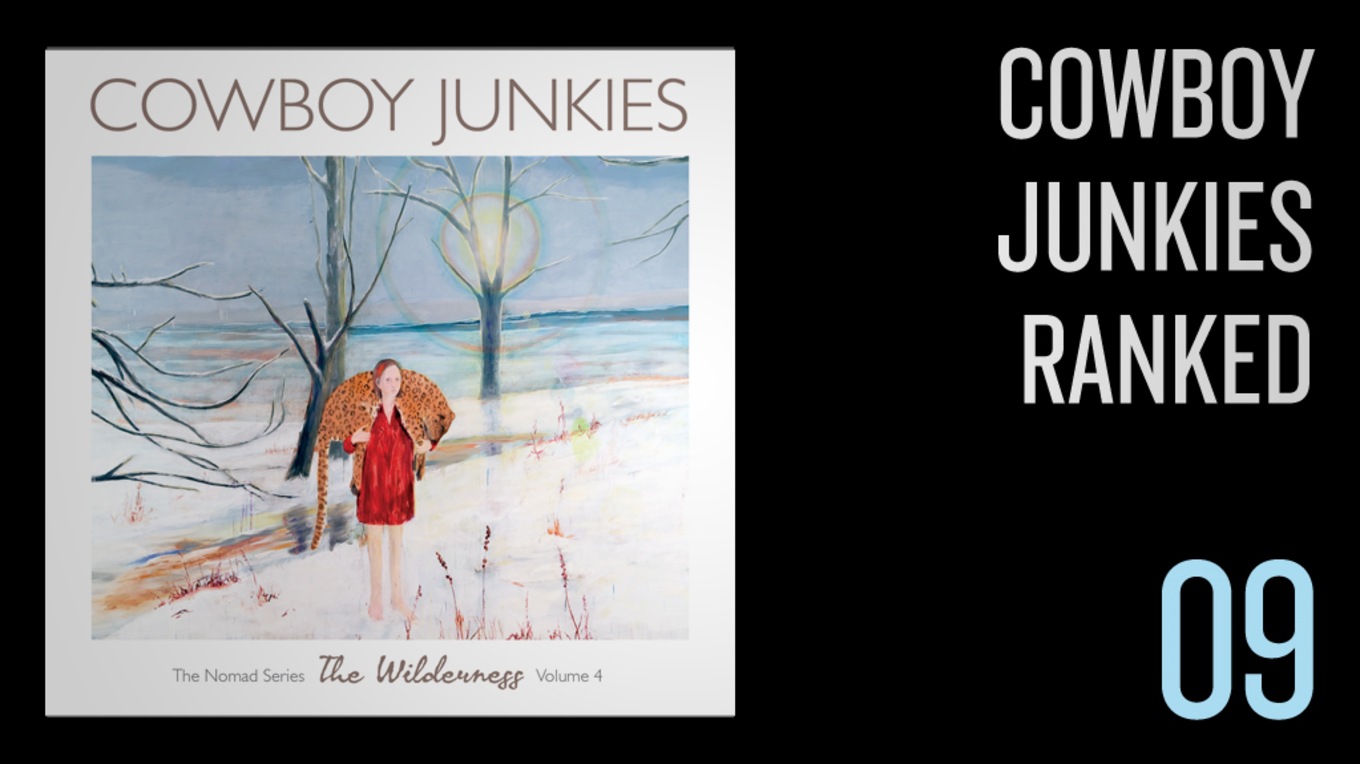
The Nomad Series Vol 4.: The Wilderness (2012)
After four straight albums of experimentation, the final album of The Nomad Series, The Wilderness, is a sonic return to a more traditional Cowboy Junkies album.
The haunting opening tones that support Margo's vocals on "Unanswered Letter" send the signal that the Junkies haven't lost a step, despite having mucked around with different thematic constraints for five years. Margo has cheekily described it as "the gift": "If you can get through the first three albums, you can have a nice, quiet gift."
Ever the storyteller, Michael continues the tale he started decades earlier on "Murder Tonight, in the Trailer Park," craftily closing up some old business on "The Confession of Georgie E." "Fairytale" just might be the most impressive sonic sibling symbiosis between Michael and Margo since "Misguided Angel," as Michael's writing elevates Margo's performance, and vice versa.
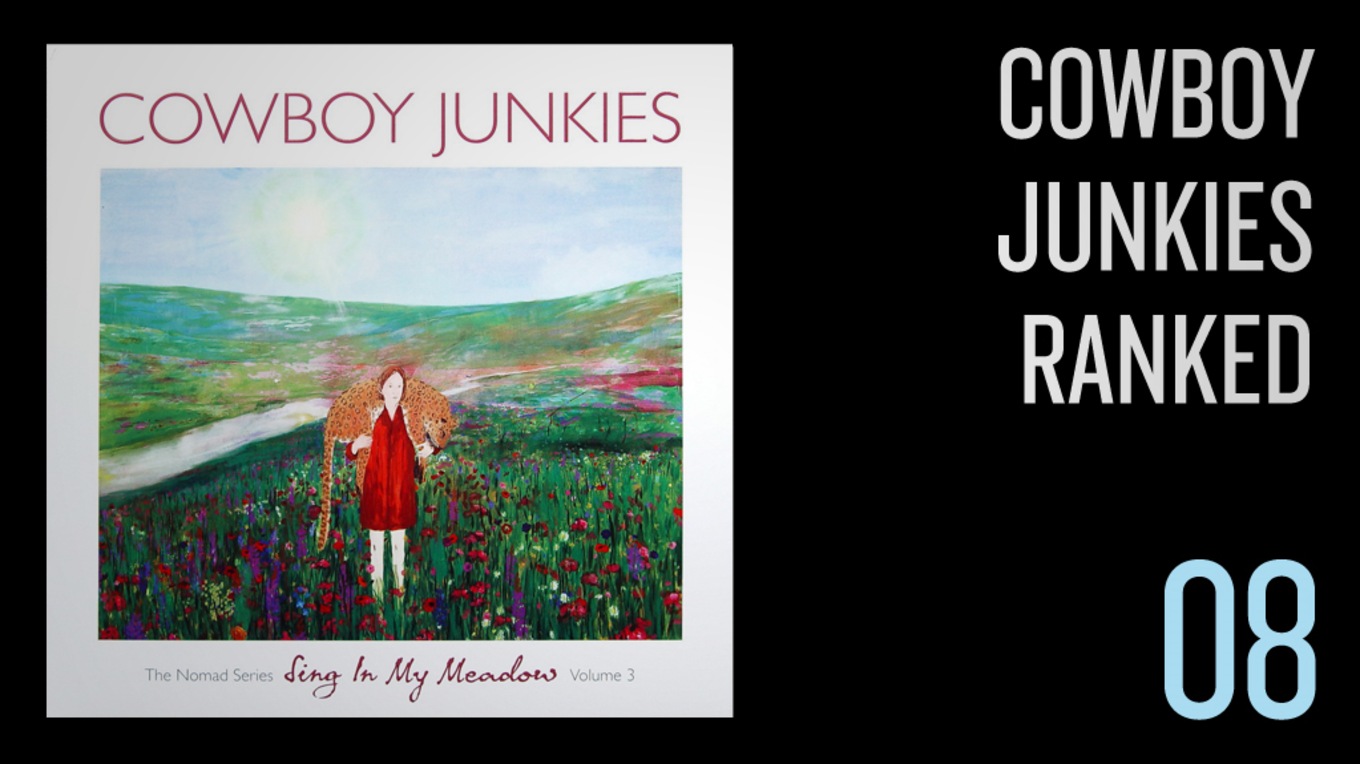
The Nomad Series Vol. 3: Sing In My Meadow (2011)
As the Junkies got older, they got louder. They've long been proponents of noise rock onstage, and Sing In My Meadow saw them finally putting it down on a studio record. Recorded live off the floor, gritty and full of attitude, Sing In My Meadow is a reminder that those nice kids from Canada are not afraid to put their foot on the neck of a song and step down.
"Late Night Radio" and the title track are the standouts.
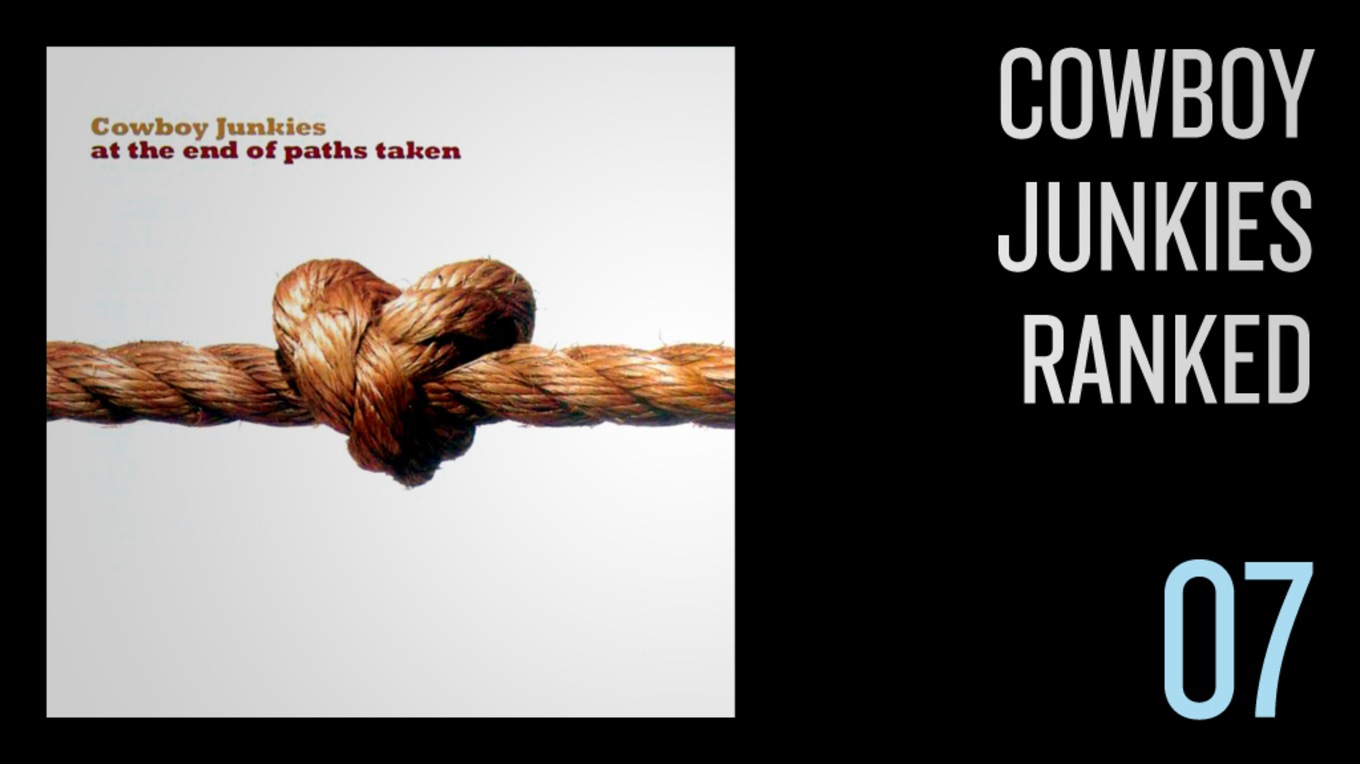
At the End of Paths Taken (2007)
From the outset, Michael intended to write an album about family and all of its permutations. So while At the End of Paths Taken has all of the hallmarks of a Cowboy Junkies record — songs of love, loss, life and death — it’s not. This is a record for grown folks. It is a record written from the perspective of someone who is very clear on the fact that they are closer to the end than to the beginning. Stuck between aging parents while raising children; at the end of paths taken, and still not fully knowing what to do about it.
It's a concept symbolized to sonic perfection by the swirling, chaotic ending on the opening track "Brand New World." There’s a certain degree of resignation, but it isn’t weary. While the subject matter is heavy, the music brings hope. "Still Lost" and "Follower 2" sound like all is not actually lost, the latter slightly more hopeful live when Margo sinks into the chorus at the end of the song.
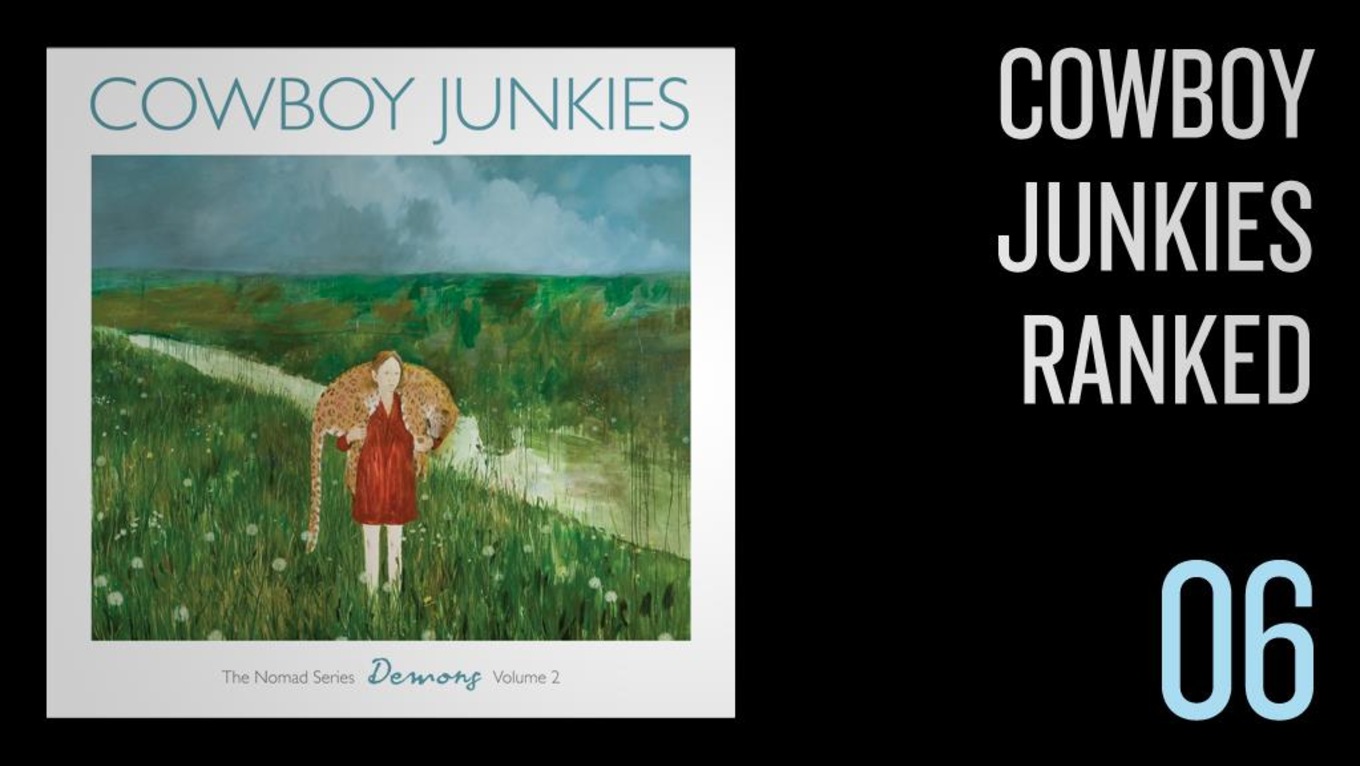
The Nomad Series Vol. 2: Demons (2011)
In 2007, Cowboy Junkies worked with Vic Chesnutt on Trinity Revisited. In 2009, Chesnutt died. Knowing that one of the elements of The Nomad Series was going to be an album of covers, Chesnutt was an obvious choice.
The band approached the album with some degree of caution. Chesnutt was not a typical songwriter, and his idiosyncratic phrasing and peculiar references could have proved tricky for a straightforward singer like Margo. Instead, it’s one of her most impressive vocal performances on record, and one of the Junkies' finest works to date.
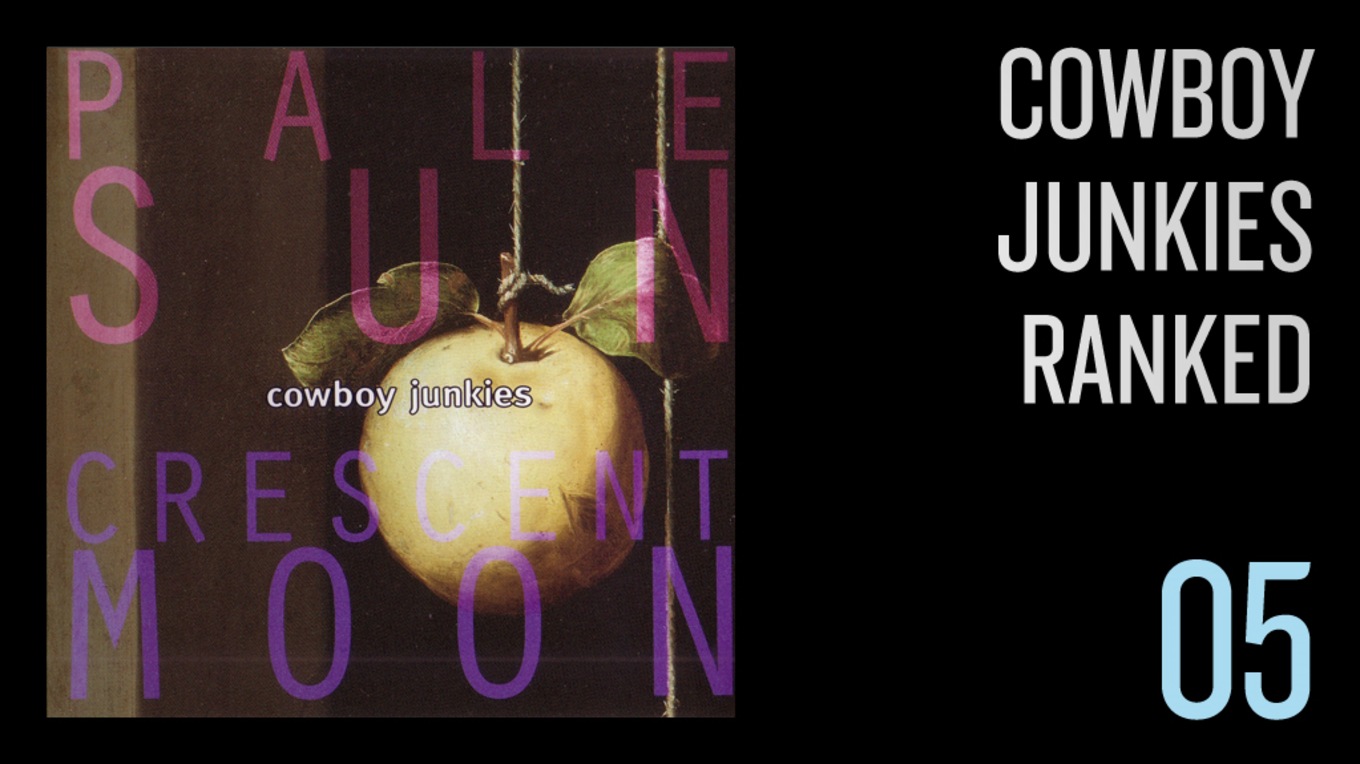
Pale Sun, Crescent Moon (1993)
The band starts turning it up a notch on Pale Sun, Crescent Moon. Five records into their career, the Junkies refresh their sound ever so slightly. Not quite hard rock but no longer hushed, the band begins to explore the outer edges of their sound.
The album opens with a decisive, assertive chord signifying that the songs on Pale Sun, Crescent Moon are going to bite and kick just a little bit harder than one might be used to. Also, some of Michael's moodiest writing is on display in this collection, best illustrated by his defiant questioning on "Hunted," a song that has only become more menacing with each live performance over the years. His literary influences also make themselves plain as he incorporates William Faulkner and Gabriel Garcia Marquez into "Seven Years" and "First Recollection."
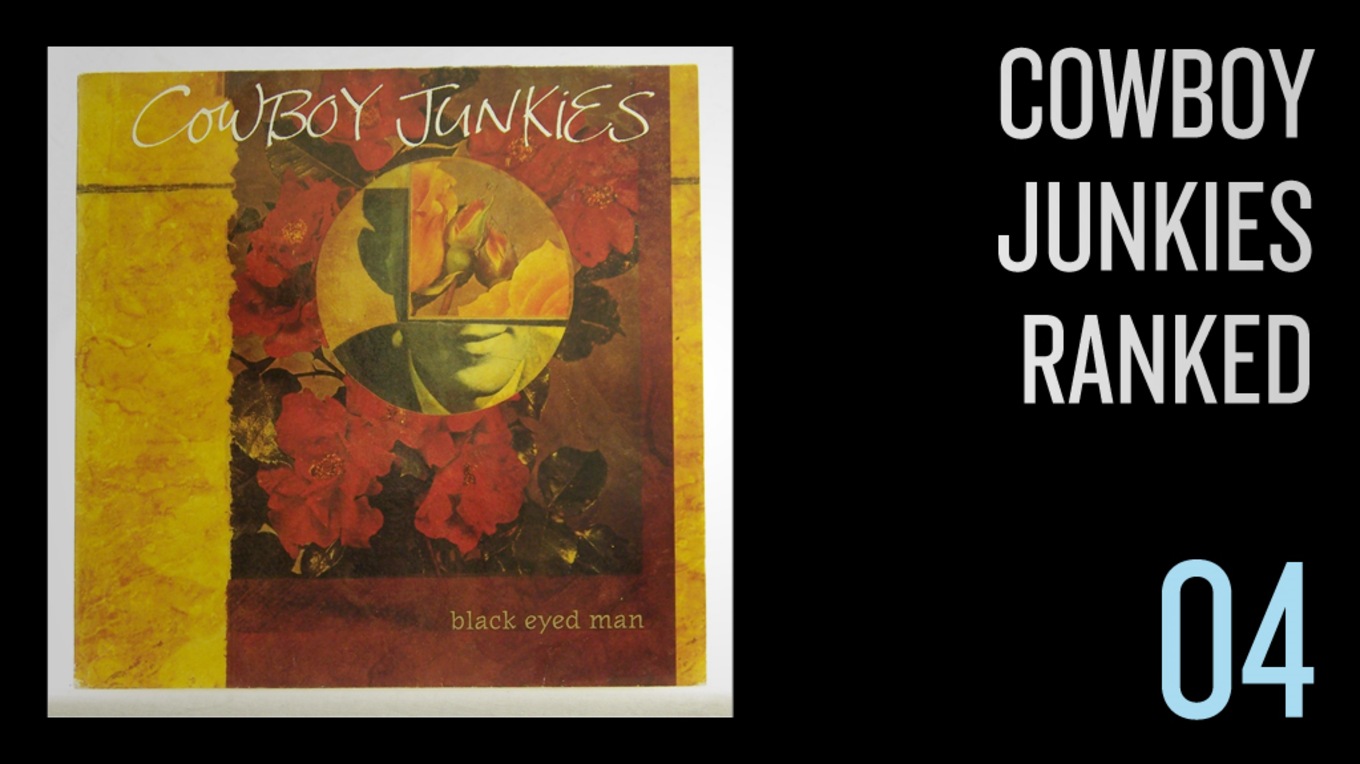
Black-Eyed Man (1992)
If every album is a marker of a particular point in a band’s career. some of those markers run a little deeper than others. With skill, grace and a truckload of southern influence, Cowboy Junkies explore love and murder on Black Eyed Man. But they don’t go it alone. Now four records in the core four (Michael, Margo and Peter Timmins along with Alan Anton) are comfortable enough with their own sound to make just a little more room for others.
Fourteen additional musicians flesh out the sound of this record treating the listener to guitarist Ken Myhr’s assertive lead on Southern Rain, the first ever Cowboy Junkies duet with John Prine accompanying Margo on "If You Were The Woman" and a wonderfully horny New Orleans 'second line sound at the end of "Oregon Hill". This record also marks the first time the band’s rhythm section steps into the spotlight with Alan Anton’s bass lines reaching new levels of intricacy and Peter Timmins’ drumming prominent but not overpowering on the title track and the "This Street, That Man, This Life".
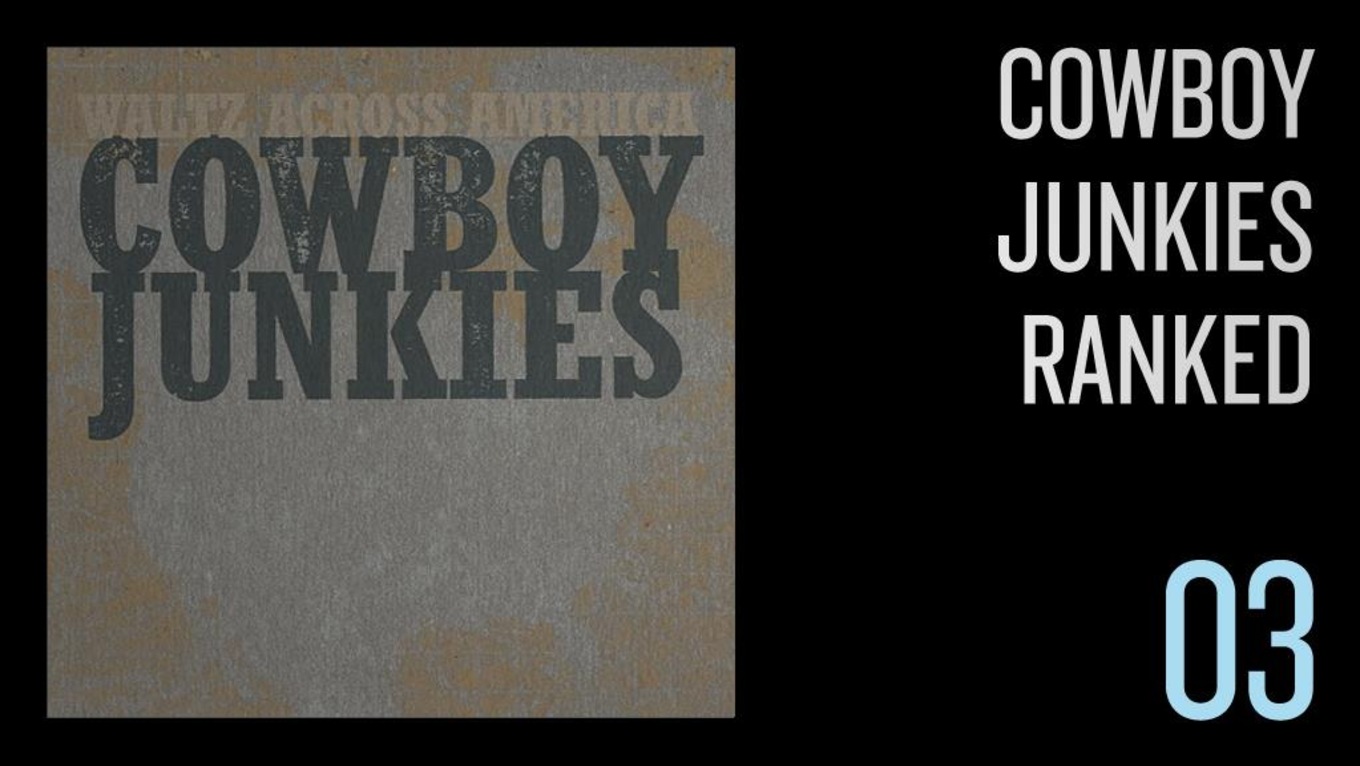
Waltz Across America (1995)
Cowboy Junkies are a two-headed musical beast. There's the band on record — solid songwriting, gorgeous vocals on top of homegrown musical chops — and there's the live band, which puts together the winning one-two punch of "Good Friday" and "Southern Rain," kicks you in the heart with a blistering version of "Hunted," stretches "Blue Guitar" out forever (yet still leaves you wanting more) and swings "Sweet Jane" out so damn hard that even diehards won't recognize it. They had a good time on the Miles From Our Home tour, and it shows.
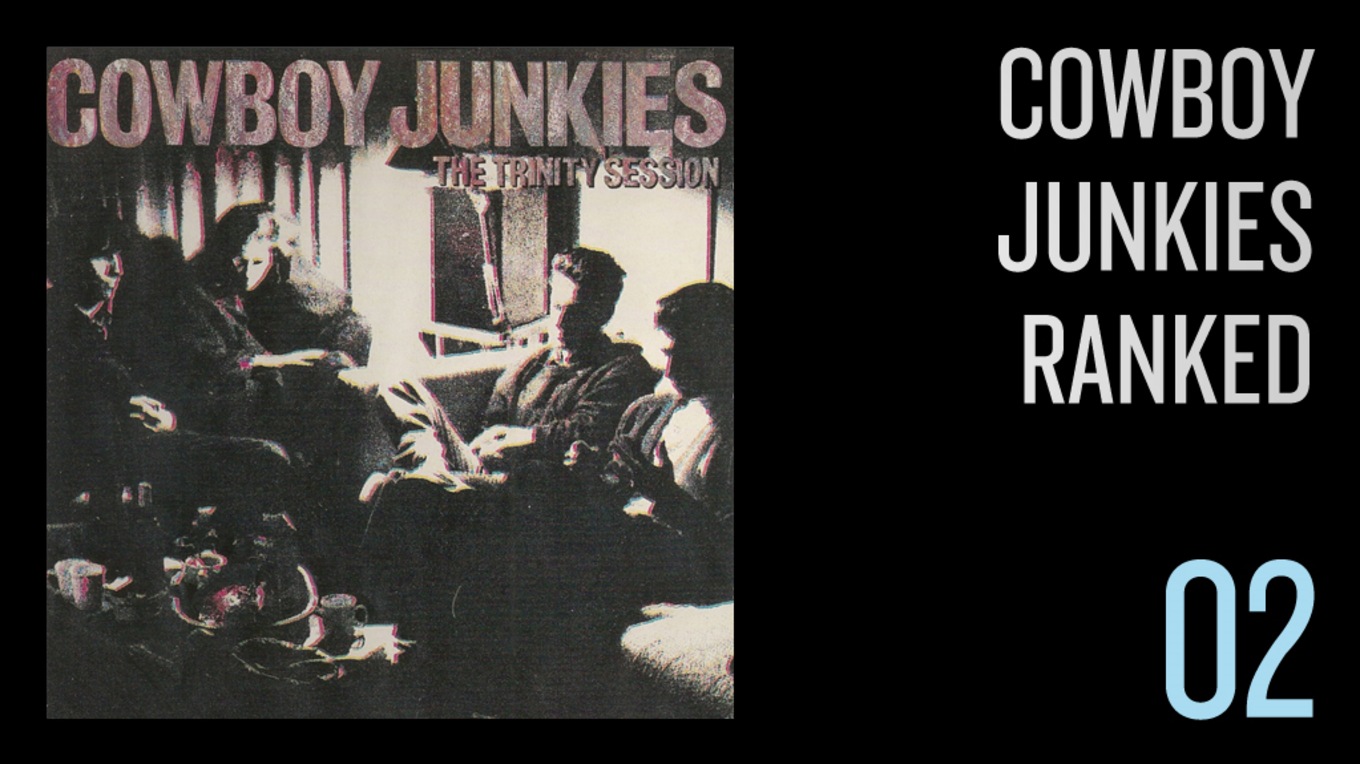
The Trinity Session (1987)
On Nov. 27, 1987, the Junkies walked into Church of the Holy Trinity in Toronto and it changed their lives. Simple and pure, the band made the record they wanted to make exactly how they wanted to make it, and it worked. The story of this album's making-of is as well known as some of the songs themselves, so I won’t repeat. But the result was that, with no mixing, edits or overdubs, Cowboy Junkies did the unthinkable in the era of increasingly mechanical and very '80s music production: using only the music, they compelled you to listen.
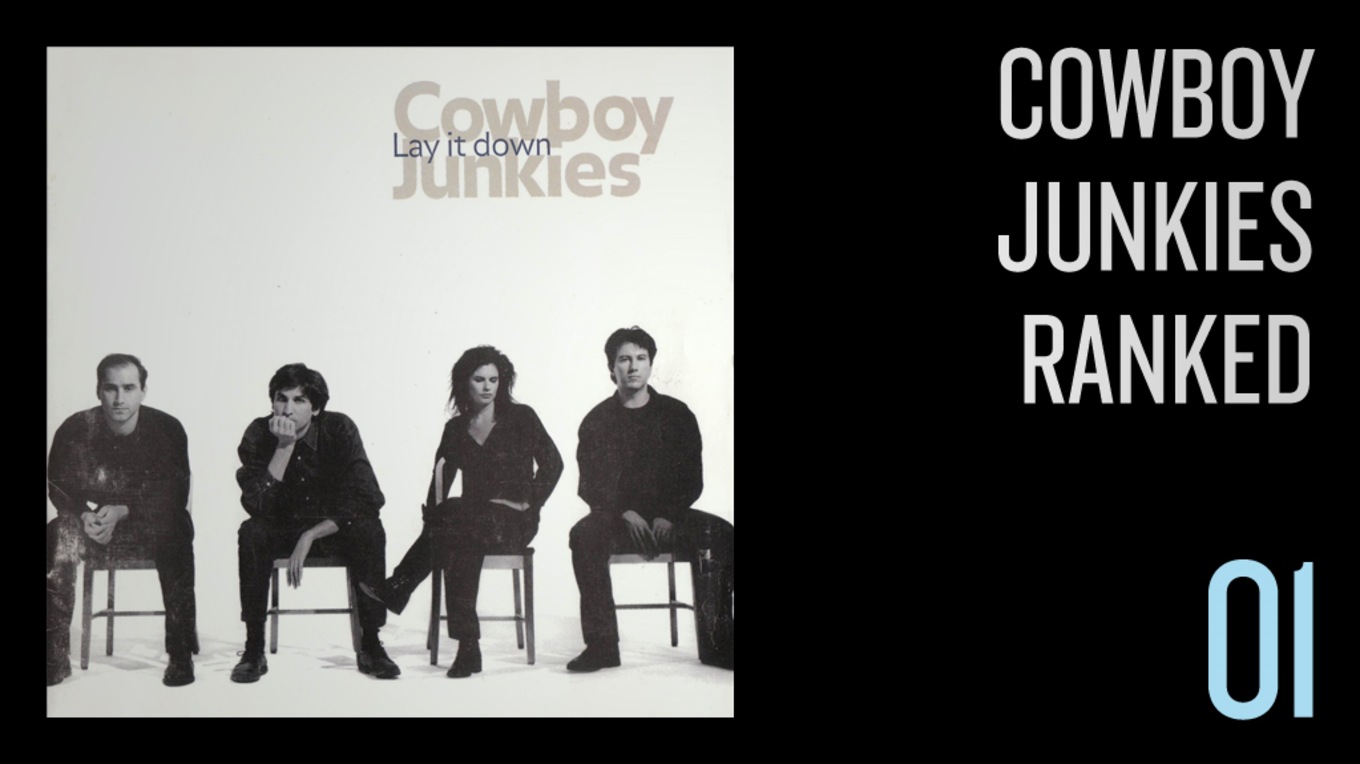
Lay it Down (1996)
I don’t know what went into the making of Lay it Down, but I know that it is a record with an excellence that is routinely ignored simply because it had the audacity to not be The Trinity Session. There is no doubt that The Trinity Session was a landmark album for the band, but musically, everything the Junkies have done up until now they do better on Lay it Down.
The band closes the circle with this record. The most significant change is that Michael, the primary songwriter, comes into his own as a guitar player and takes solos. His rhythm-as-lead style of guitar playing adds a sinister edge to "A Common Disaster," perhaps the first pure pop song he’d ever written. He also layers himself to great effect on the title track, and plays nicely amid the strings on "Hold on to Me."
While Michael was working up his guitar chops, somewhere between the release of Pale Sun, Crescent Moon and the recording of Lay it Down, Margo managed to harness the full power of her voice. The endearing fragility is still there on "Bea’s Song" and "Now I Know," but she now seems to delight in going from a whisper to a wail on songs like "Lonely Sinking Feeling" and subtly sneers her way through the verses of "A Common Disaster." The discovery of this newfound vocal glory has Margo adding all sorts of colour to a vocal palette that, up until that point, had been essentially a one-note symphony. With nothing more than a slight inflection, she was able to embody the characters that her brother had been writing for her voice for years.
More to explore

